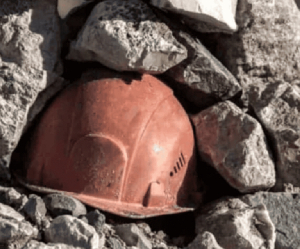Ghana’s Potential Surpasses the Acrimony of Political Negativity
Ghana, like every country, has its share of challenges. However, its government cannot be envied for the climate in which it has to do its work. One only has to look at the political opposition’s posturing and their media rabble-rousing allies for the source of the descending darkness that is occupying the perception of its legitimacy in the minds of Ghanaians and political observers alike.
Putting it bluntly, the censure of the National Democratic Congress (NDC) government’s attempts to improve the life of its citizens and enhance the standing of the country by the National Patriotic Party (NPP) is both senseless and petty. It is an affront to well-meaning Ghanaians who have warmed up to the democratic climate generated in the twenty odd years of the Fourth Republic, thus ready to contribute their skills and talents to the country.
For this reason, the awaited judgement to the legal challenge mounted by the NPP to the election results cannot come sooner. For it will settle the truth on the grievance of the disgruntled core of the opposition party’s followers once and for all and help dispel the destabilising mood their continued refusal to concede to the will of the majority of the electorate is casting over the country.
Instead of intellectualising ways to prompt the elected government to fulfil its campaign promises, in the interim, the NPP seems to have other ideas. How can they claim to mean Ghana well with their divisive urges even though their petition is being heard by the Supreme Court? Worst, the NPP’s representatives look to have abandoned their duty to the state, sense of patriotism and above all, not conducting themselves as befitting the status that the voters accorded them.
Disappointment at the lack of sympathy and international opinion to their plea has led to a follow-on arrogant accusation of Ghanaians as apathetic, and by implication political immaturity. After 56 years of Independence, during which the country has had its fair share of challenges and risen above these, it is disrespectful of elements within the NPP to question their judgement, and wrongly assume that their point of view and sense of right must be taken up by all. It is as if Ghana’s standpoint, since 1992, that the country does not ‘belong’ to any particular party nor indeed does any group of people have the right to expect so has fallen on deaf ears.
Ghanaians deserve better and the NPP, by mudding the waters, seems to be taking them for granted. What is there to gain by making the country ungovernable, hurling infantile insults at the Executive and inciting tribal hatred, apart from acrimony? Even if the NPP had ‘banked’ on winning the last elections, it does not excuse the ‘die-hard’ amongst them to vent their anger and frustration on the electorate with shocking and blatant intimidating language in public particularly in the media, especially since they have ownership of the majority, thus using them stridently to control what Ghanaians must hear and debate.
Unsurprisingly, the NPP’s pitiful rhetoric is not washing with well-meaning Ghanaians. Why should it, when they know their country’s potential? No amount of distraction or political negativity is going to convince them otherwise. Faced with a situation where the government is even faulted for making the right moves, the NPP seems to have forgotten what it means, politically, to savour hope and optimism. If they are so confident in their petition, why instigate mayhem only to have to pick up the pieces if it goes in their favour?
Ghanaians, far from being apathetic, are rejecting the voices of extremism. The government, on its part, deserves credit for its calculated and measured responses amidst the circumstances, maintaining as it does, its focus for Ghana to avoid grief over their petition. In doing so, it has shown that democracy is not about perching on a fence hoping that “great God will come from the sky and make everybody feel high”. To top this off, the government has to go further with proposals for the decentralisation of power to ensure that the ambitions of a handful cannot hold Ghana to ransom again.
Democracy and development ride on a wave of hope and optimism. This, of course, does not excuse the government of its election promises. Political negativity, however, is not what builds nations, promotes development, realises progress and so forth. Even if it is a consequence of democracy, the seeds of discord that elements in the NPP want to sow are not in Ghana’s interest. The government, actually, has been salient with its dictions of hope and optimism at opportune moments which at least, reminds Ghanaians about country’s potential to spare them the acrimony of political negativity.
Richmond Quarshie MBA
Opinions of Friday, 26 April 2013
Columnist: Quarshie, Richmond
What of Hope and Optimism?
Opinions













